Chickens seem like they are a pretty hardy sort of bird. However, chickens are not penguins by any means. This raises questions about how chickens stay warm, how cold is too cold for them, and how to ensure they remain warm during chilly conditions. The following will help you fix up and keep a toasty coop for your chickens.
How Cold Is Too Cold? That Depends on the Chicken Breed
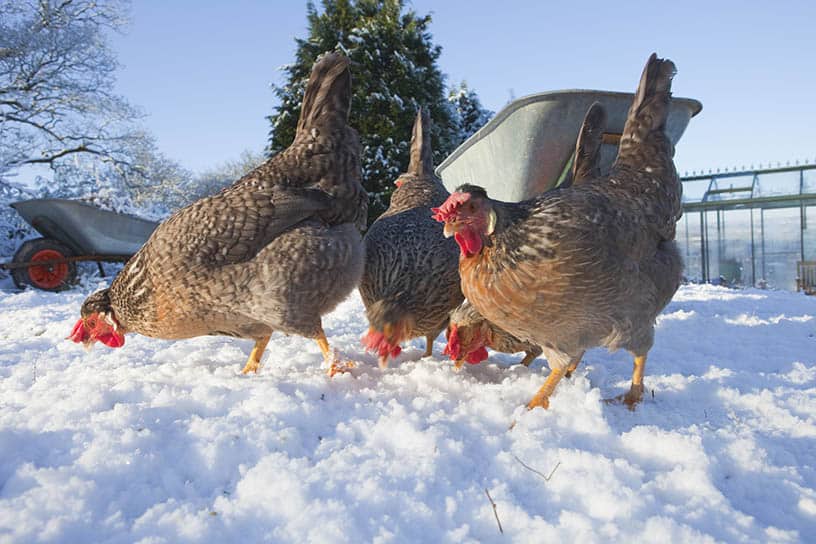
Like many breeds of dogs, some chickens are bred to withstand colder climates. A husky will do great in Alaska but will suffer in Florida. Likewise, many breeds of chickens will find the cold weather quite comfortable, while their warmer weather cousins can die outside if it is too cold.
Here are some chickens that can thrive and survive in the cold:
- Silkie
- Dorking
- Australorp
- Rhode Island Reds
- Plymouth Rock
- Cochin
- Wyandotte
- Buckeye
- Dominiques
- Welsummer
All of the above chickens have really thick, very heavy plumage that is doubled in layers to keep these breeds of chickens warm in frigid temperatures. However, you should still avoid leaving your chickens (regardless of breed!) outside in temperatures that are well below zero.
On the other hand, there are chickens that are highly susceptible to cold and might not survive temperatures below forty degrees. These chickens do not have the dense plumage of those chickens mentioned above. In fact, these chickens thrive in very hot and humid climates.
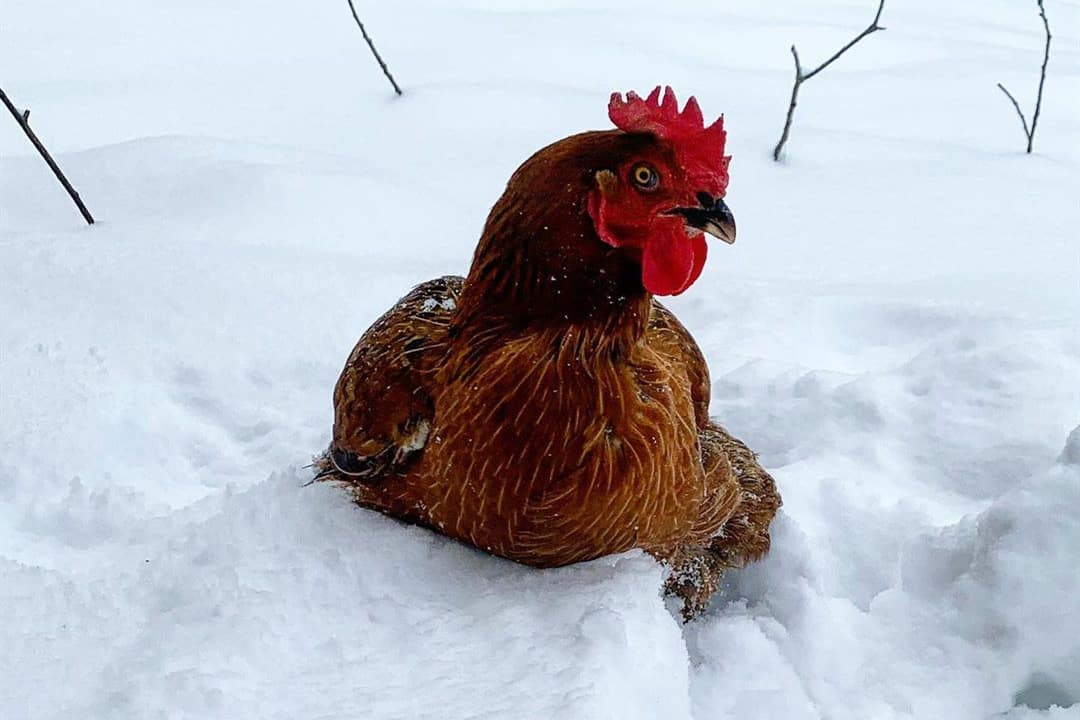
Hot weather chickens include:
All of these chickens have fewer layers of feathers and fewer feathers. You are more likely to see more of these breeds of chickens in yards and on farms when you head south past the Mason-Dixon line. Depending on where you live, you should invest in chickens that are the hardiest for the climate in your area.
How Chickens Regulate Body Temperature Is Important Too
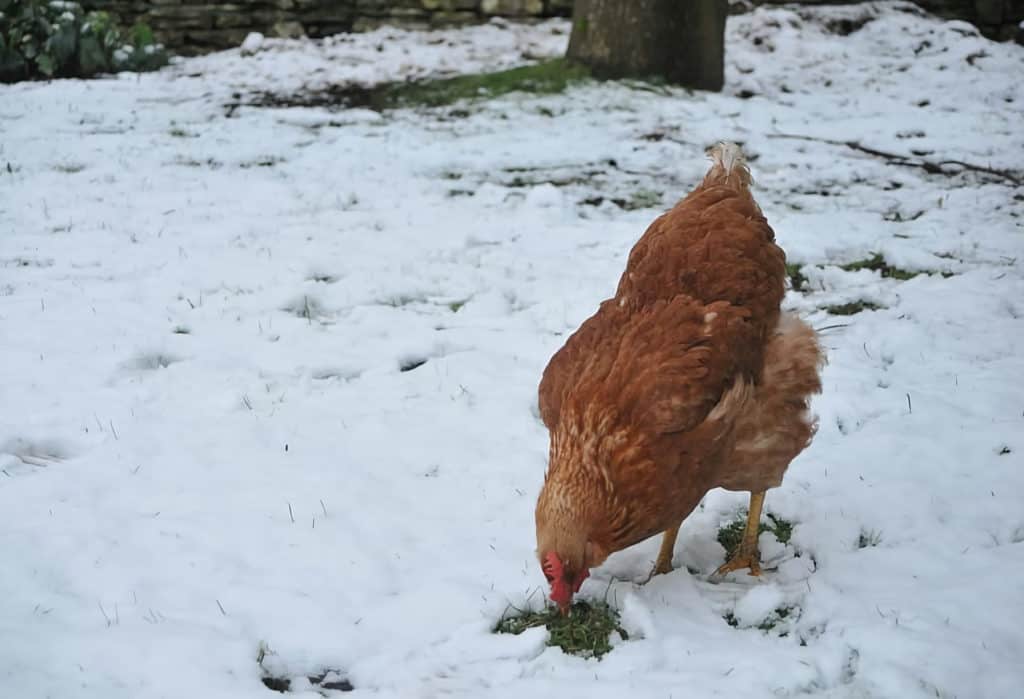
Different animals have various methods to regulate their body temperature. Dogs pant to keep cool, pigs wallow in the mud, but chickens transfer heat through their wattles and combs. If a chicken loses its wattle and comb to fights with roosters in the coop, through an animal attack, or through abuse, the chicken cannot regulate body temperature and may die.
The blood vessels in these features of the chicken’s head need to be present to release heat or contain it, depending on the time of year. Chickens that have been bred for colder weather will attempt to shed lots of feathers to keep cool in summer, too.
Additionally, chickens bred for hotter climates will spend a lot of time flapping their wings to release the heat trapped close to their bodies and under their wings. If, for some reason, your chicken loses its wattle and/or comb, ensure it stays indoors during winter and has adequate shelter from summer heat.
Chickens Can Freeze to Death
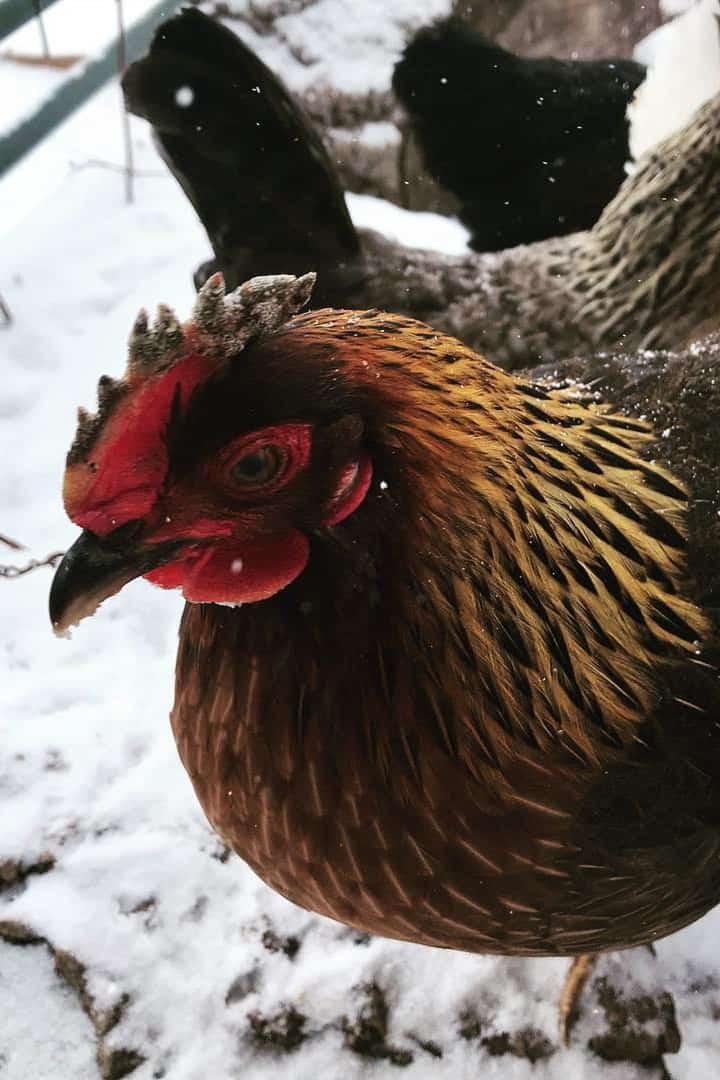
Chickens can freeze to death. A coop with no heat lamp on colder days is a death trap for chickens, especially if they are not the right breeds of chickens for your climate. Eggs can freeze solid too, so it’s vital to install a heat lamp or two in the coop if temperatures are expected to drop significantly below zero.
If there is an outdoor space where you can safely keep your chickens and that space is heated to fifty degrees or above continuously, it is a very good idea to put your chickens in there when the weather is biting cold.
Cold weather chickens can withstand temps around or slightly below freezing (32 degrees Fahrenheit to about ten degrees Fahrenheit). Warm weather chickens should not be kept at or below the forty-degree mark, although short periods of a few minutes outside to stretch their legs is okay if you have the time to herd them back into the coop before they freeze.
If a chicken doesn’t like snow and cold, it will generally turn around and head back into the coop, but that does not mean that every chicken in your coop will be that smart.
Regulating Temperature in Your Coop
If you live down south and keep hot climate chickens, the only things you really need to do are keep the water basin full and run a built-in fan to blow hot air out of the coop. The chickens will seek out shade and shelter when and where they find it. Cold weather chickens are another story.
Cold weather chickens will need more to keep cool on very hot days. While you could outfit the coop with a small cooling system to maintain a temperature around seventy degrees, this can be expensive, especially if you’re raising just a few chickens. Make sure they have lots of shady areas in and around the coop, and that will help.
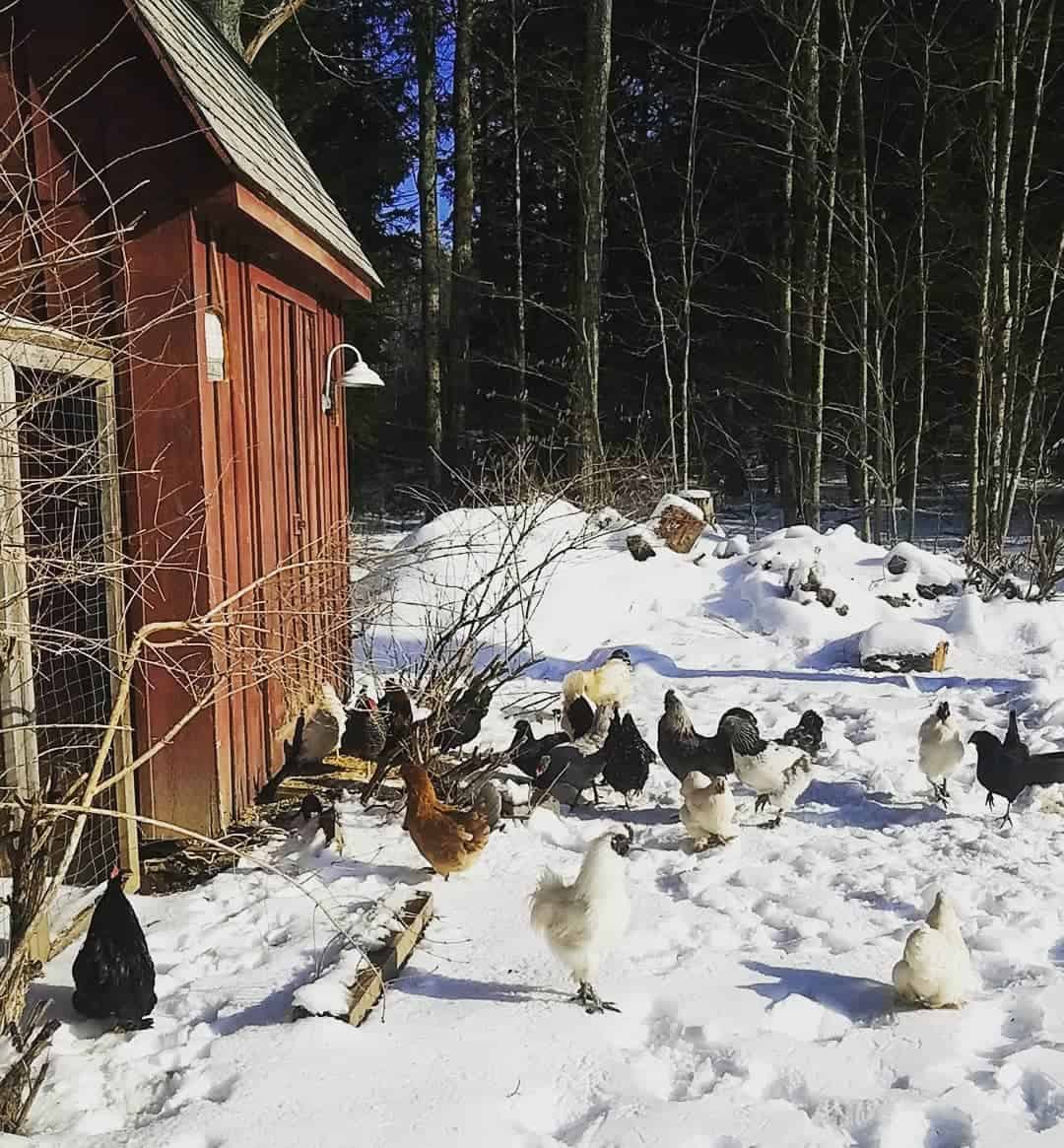
In winter, install heat lamps and other crop-specific heating elements so that the temperature inside the coop doesn’t drop dangerously low. Many chicken farming suppliers will have a few options for you in regards to regulating temperatures inside your coop if you want to “spoil” your pet chickens.
Additionally, there are other things you can do to help keep a coop warm in winter. Insulating the coop by creating walls in which you can install chicken-safe insulation is one way. The more common means is to wrap the entire coop in insulating plastic, and then again in a tarp.
Depending on the size of your coop and where it is positioned on your property, it may be possible to only have to wrap and shelter up the sides of the coop that will feel the worst of the winter winds. However, wrapping the entire coop will prevent heavy snow from burying your chickens and freezing them.
What to Do When Your Chickens Start to Freeze
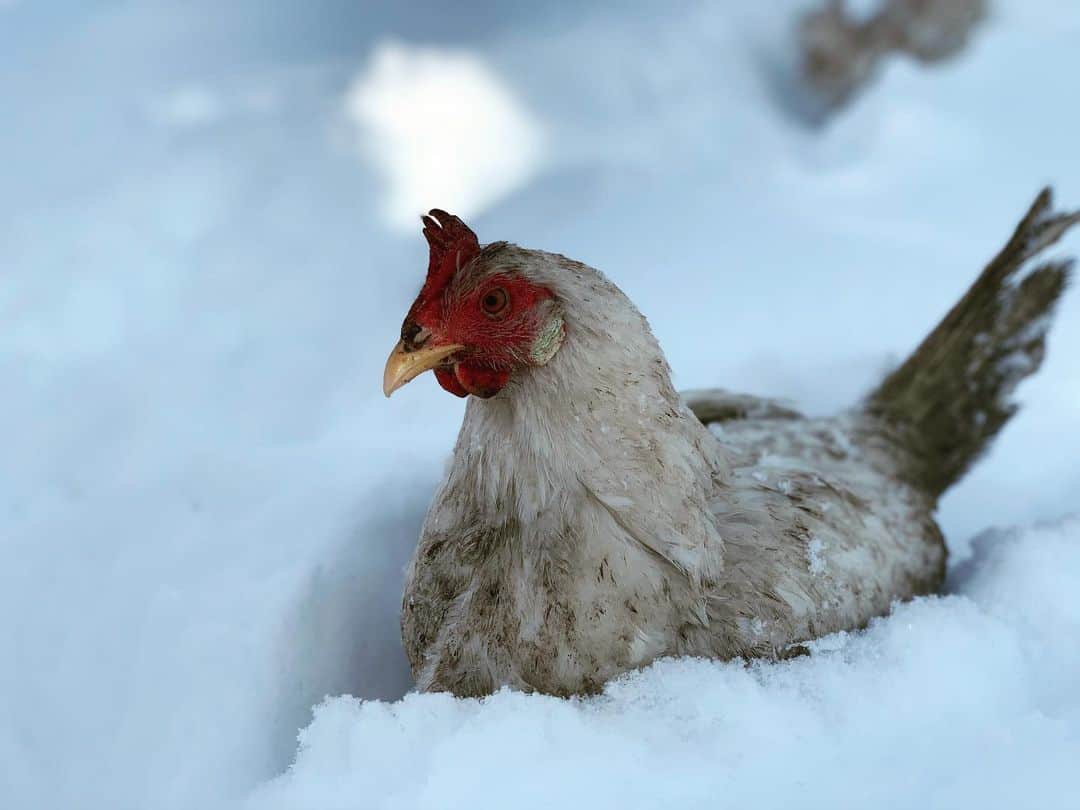
Winter weather can turn nasty in a hurry. Sometimes you will not be home when the weather takes a turn for the worse. It is important to check on your chickens immediately upon arriving home from work or errands, or when you notice that the weather has taken a turn for the worse.
If one or more of your chickens has started to freeze, it will be limp, cold to the touch, and in desperate need of warming. One good way to bring warmth back into your chickens is to tuck them inside your coat next to your body. Another is to heat towels in a dryer on the highest setting and then wrap your chickens in the towels.
Some chicken farmers resort to heating pads and/or electric blankets in the coop, but it is better to bring them into your garage if you are going to use the heating pads and blankets to avoid a potential fire in the coop.
If you make a makeshift chicken hospital in your garage, you can heat the space and the chickens with space heaters. You can buy space heaters that will turn off if the chickens revive themselves and accidentally knock the heaters over (a nice safety feature).
Chickens Buried in the Snow and Chickens Getting Fresh Air in Winter
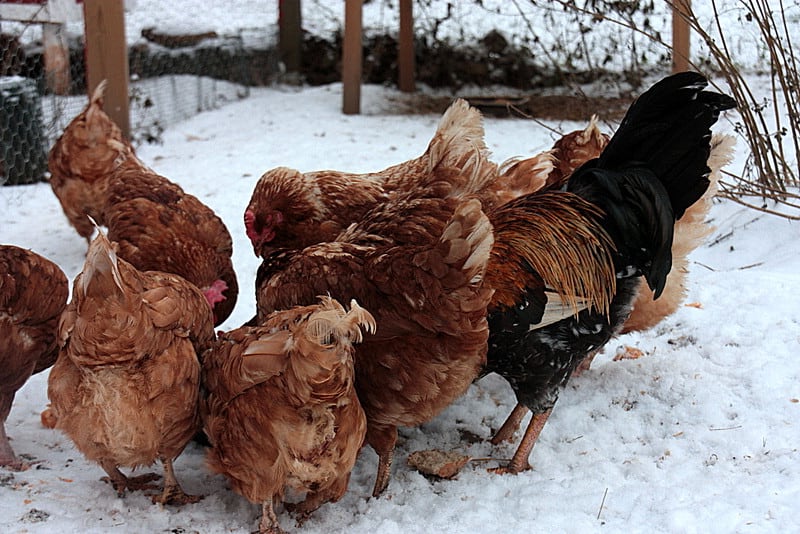
Chickens are smart enough to huddle together for warmth. That is a good thing, but it may also mean that you will have to dig your chickens out of snowdrifts if you do not properly prepare the coop for winter.
Because you do not want to hurt your chickens with a shovel either, you will be spending a lot of time digging them out by hand. It is far better to wrap up and enclose the entire coop as best as you can and to do it before the first snowflake falls.
You can let your chickens out on days where the weather is not bitter cold, and there are no blizzards or heavy snowstorms. Chickens can get a little frazzled if kept locked in the coop all winter, so pick select days to let them out. Always be sure to put them back into the coop before you leave to go anywhere in order to ensure their safety if the weather does turn nasty.
Summary
Now you have a comprehensive understanding of how chickens manage in various weather conditions, especially in colder temperatures.
As someone who wants to raise chickens for eggs and food, or as pets, you will be better equipped to build the right kind of coop, buy the right breeds of chickens, and protect your birds from nasty weather. When you are knowledgeable about chickens, you will find that they are easy to care for.
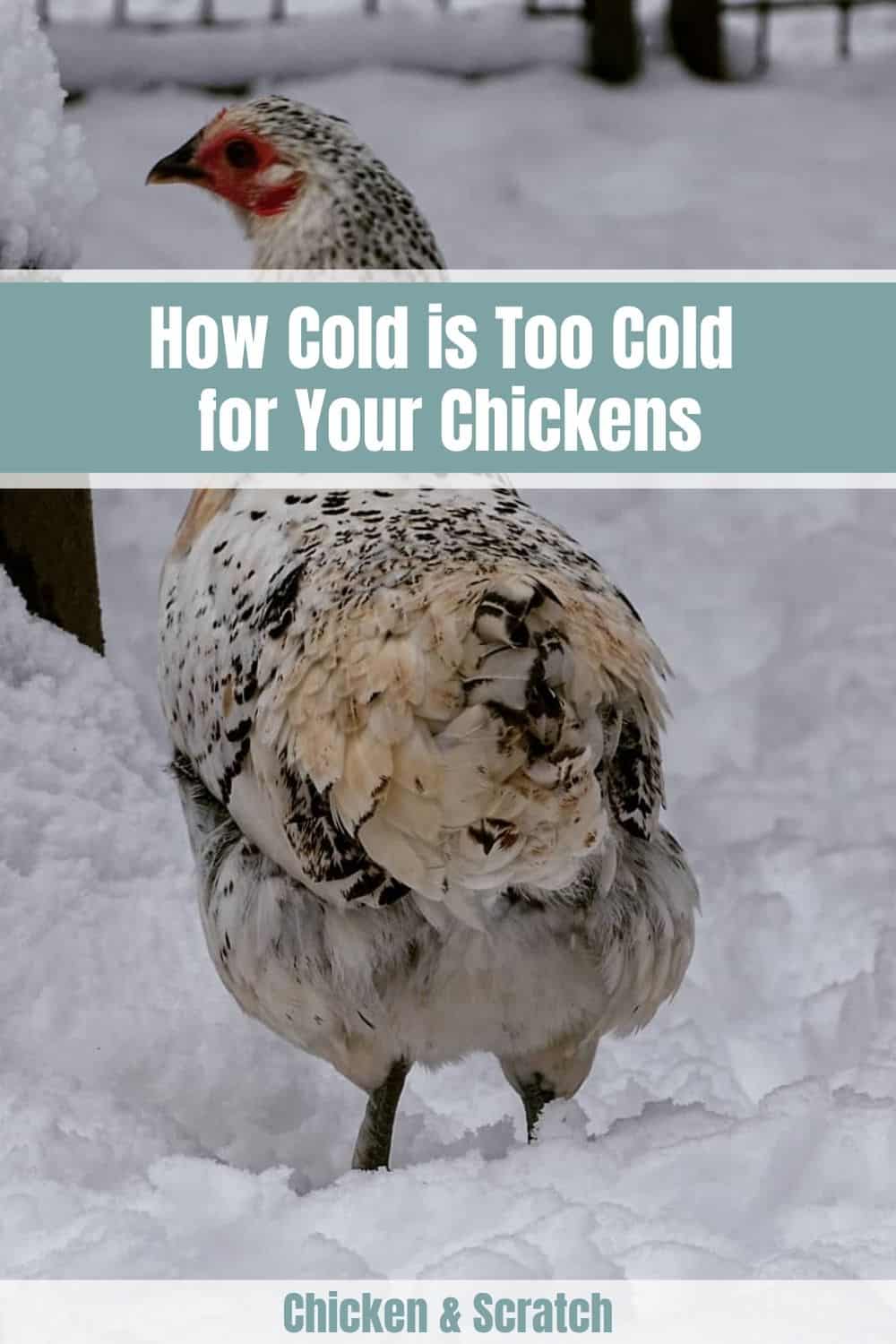

Joseph Hudson has been raising chickens for over 15 years. In 2018, he completed the Agriculture & Natural Resources program at Mt. San Antonio College. He currently raises over 1400 chickens on his 7.5-hectare farm. He keeps sharing his experience on raising healthy and happy chickens on Chicken Scratch The Foundry.
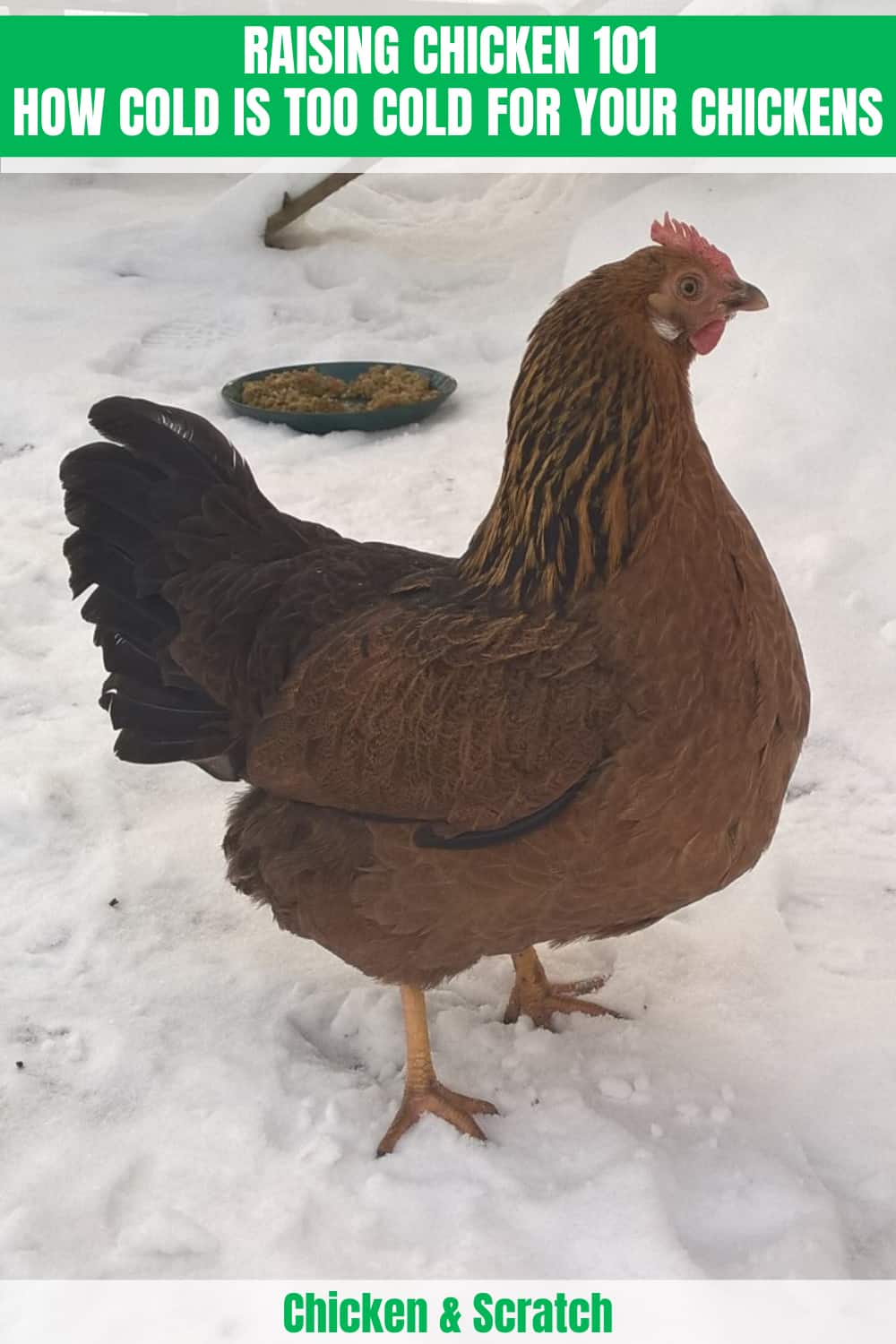







This is my first time raising egg laying chics. We bought 4 BarredRock chics about 2 wells ago. If they are not tolerant of cold weather then why would TSC sell them?
Barred Rocks are actually exceptionally cold-hardy birds; in fact, they prefer the cold! The only thing you’ll have to be careful of is if you have any roosters – they have very large combs and wattles, and are prone to frostbite. They’ll need extra protection from the cold in the winter. Keep the coop free of moisture and coat combs and wattles with petroleum jelly… and please do NOT put a heat lamp in your coop. Good luck! 😊
Hi,
Where I live it’s about to get 20 below zero. I know a lot of people say they’ll be fine in their coop but I wanted to ask a question. I have a metal building that I use as a coop. I have placed four bales of straw around the inside but I plan on getting four more tomorrow. I have roosts, water, food and the floor is covered in straw and pine shavings. Should I still be concerned with how cold it’s going to get? I have a floor heater that I could put on a chair and secure it. I thought about using this because it will shut off at a certain temperature or if it gets knocked over. Do you think this is a good idea? Or have I done enough?
I have the same question. I am in the south with warm weather hens. Because the temperature went from in the 50’s F to in the 20’s, I do not think mine have had time to adapt. I am going to move them from their winterized hut to dog crates indoor area overnight, and not in an outbuilding as predators could get in. I was concerned about messing up their supposed internal thermostat. A local feed store employee had not heard of this and did not think a move to a cool room was outside the normal fluctuation in temperature they would experience, just to be sure that they can stretch some. My best guess from the info I have. Unique concern for this climate area.
They’re chickens. People have been keeping them alive for 100s of years all over the US through all weather conditions. Go on YouTube and find folks keeping chickens in Alaska. You’re over thinking it.
Because they are. This is a terrible article. Most chickens are extremely cold hardy. Far below 40 degrees.
How do you get chickens to go back in the coop?
They really like mealworms. I try to train them to recognize that when I call them they get a treat. That allows me to herd them back in the coop.
Chickens automatically put themselves to bed at dusk.
I am new at this so I need some good advice, I live in cleveland,ohio nd will be taking my 6 chick’s into the garage for the winter,what should i use on the floor?
Leavec the chickens in their coop. They’ll be fine.
I would use pine shavings. It smells nice and it’s safe for the chicks. I also use diatomaceous earth on the bottom of my coop and it helps keep odors down as well. Some people don’t like to use that they say if you use too much it can hurt their respiratory system. Mine have always been fine. Hope this helps.
I live in central Washington State where summers are hot and winters cold (30’s – low single digits). We have some of the “hot weather” breeds described in the article (several Deleware, Austra White, Barred Rock, Isa Brown), and they have survived multiple cold winters without obvious issues. They roost in a 10X12X12 3-sided shed with roof (open in front with chicken wire). Non-heated. They free-range otherwise. Wind chill is a greater concern in low temps- orient coop/ shed to block the wind. Otherwise, tarps can also be used to cover open areas.
Barred rocks are not a breed, it is a variety of the Plymouth rock. It’s a barred Plymouth rock.
Mixed flock-
-40 with the wind chill
my coop is pine boards & has some spaces between them- i felt that the typar around the outside wasnt enough to weather the extreme temp drop-the coop housed 25 hens but im down to only 5, and the space is too big for so few birds…so i stapled plastic to the inside walls and windows to stop any drafts- added straw- much scratch grain & grit -and a brooder heat lamp just for the one -40 night/day
Thanks for sharing. Coop weatherproofing sounds like a challenge. Best of luck with your flock.